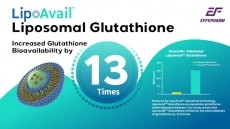Aurora Algae launches ‘game changing’ EPA omega-3
Speaking to NutraIngredients-USA, Leslie van der Meulen, vice president of business development for Aurora Algae, explained that the company can produce a vegetarian food source and renewable biofuel products, year-round with a single crop.
The A2 portfolio is comprised of four categories, including omega-3 and the A2 EPA Pure product, as well as protein products for food and beverages, algae-derived biofuel, and a family of protein-rich algal grains for feed, mostly aquaculture.
“The allergen-free, vegetarian sourced A2 EPA Pure will be a game changer,” said van der Meulen, who is also Secretary for omega-3 trade association GOED. “The unique properties and infinitely scalable nature of our algae platform will allow our customers to safely invest in the abundant application potential of EPA, knowing their supply is guaranteed.”
Van der Meulen added that the company can be competitive in price given the vegetarian nature of the product and its concentration: The company’s ‘crude’ algal oil contains a concentration of 65 percent EPA, compared with 18 percent in ‘crude’ fish oil, said the company. There is no DHA in the oil, said van der Meulen.
Protein
Also in the newly launched portfolio is the range of protein-rich powder products for the food and beverage industry. The protein contains all the essential amino acids.
While van der Meulen expects the sports nutrition segment to be an early adopter, he said that the range could find its way into many products for general protein fortification.
Cultivation
All of the company’s products are derived from algae, a factor that “positively addresses the food versus fuel argument”, said Aurora Algae. On cultivation, the biomass is split into two streams – a defatted stream, and an oil stream. The oil stream is further fragmented into fuel and the EPA-rich oil.
The company’s IP includes about 30 patents, about half of which cover science and the other half cover processes, explained van der Meulen, and the algae are cultivated at the company’s demonstration facility in Karratha, Western Australia.
“This part of Australia offers some of the most optimal conditions for algae growth,” he explained. “It’s non-arable land, and there is an abundance of sunshine, seawater, and carbon dioxide.”
The algae are cultivated in open ponds, said van der Meulen, which are “scalable to enormous scale”, he added. The company will hold a grand opening event at its Karratha facility on May 4, and will invite strategic partners and customers to attend the event. Approximately 15 tonnes per month of rich algal biomass is now available for customer evaluation, added the company.
Commercialization of the products is predicted to occur in 2012, said the company.
“Leveraging our in-depth knowledge of these marine organisms, and our proprietary molecular genetic approaches, we have established non-GMO algae strains with drastically enhanced lipid profiles, yield and resilience,” said Dr Bertrand Vick, chief science officer for Aurora Algae. “These innovations, combined with our optimized cultivation, harvesting and extraction technologies, have allowed us to quickly bring to market a sustainable, renewable portfolio of products.”
The Hayward, California headquartered company was founded in 2006 by three Berkeley graduates.














